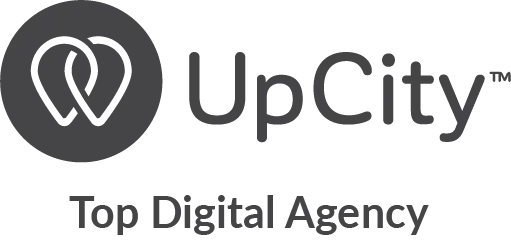hello world!

Social media is every marketer’s dream come true. It provides free access to a vast audience of prospects for all businesses. With over 3.9 billion users worldwide, social media is a goldmine for marketers. 77.6% of small businesses say they use social media to promote their brands. Businesses invest in social media marketing to build trust and forge relations with their prospects. But different surveys reveal that these efforts seem to be backfiring.
Statistics show that 91.9% of US marketers for companies larger than 100 employees will use social media this year. That’s because social media offers an effective way to connect with potential leads, deliver custom content and build relationships that lead to conversions. When done correctly, social media marketing helps businesses to:
But although many marketers are promoting their business on platforms like Facebook, Instagram, and LinkedIn, it doesn’t mean they are getting significant revenue out of it. SmartInsights shared a DMA research that reveals only 48% of marketers said social media gives them a return on investment. DMA interviewed 111 marketers from different B2B and B2C companies regarding social media use. SmartInsights also ran its research on 609 marketers and uncovered a vast difference in how they see social media marketing's effectiveness.
Social media can still be a great source of traffic and income for marketers. However, for many, it is not as effective as it used to be. Here are some reasons why.
This is an era of digital Darwinism – a time where society and technology are evolving faster than businesses can naturally adapt. Technology marketing moves quickly, and consumer behaviors and interests are hard to predict. Marketers who apply the same social media marketing methods as they did years back cannot survive.
Today’s consumers are becoming more digitally empowered. As a result, brand messages can lose their impact, thus reducing the number of conversions. Businesses that want to convert digital-savvy clients into buyers must provide the most substantial range of digital experiences. Successful brands seem to differentiate themselves in the market as they are good at building referral networks on social platforms. Unless a brand has a marketer who can craft a dynamic social media marketing plan, a business can get lost in the noise and end up with fewer conversions and ROI. If this is your case, you make consider outsourcing social media management.
Today’s consumers don’t trust social media and the brands that use them as they once did. According to Edelman’s 2018 Trust Barometer, only 41% of people trust social media platforms globally. The survey further revealed that 40% of people said they deleted a social media account in 2017 because they didn’t trust the platform with their personal information.
Kantar’s DIMENSION survey revealed a looming mistrust among consumers towards social media platforms and advertisers alike. The survey had 8000 connect participants across eight countries, including The UK, US, and China, which have a combined total ad spend of $400 billion. It found that there’s a degree of cynicism about paid media, with only 14% saying they trust advertisers in this respect.
Social media was ranked the least trusted medium for news and information, with only 17% of connected users citing Twitter and Facebook as trusted sources. Social media accounts for 13% (or $84 billion) of total global ad spend. In the survey, 37% of participants said they trusted newspapers, 31% TV, and 32% radio.

The last few years have seen a rise of new social movements. These movements are powered by sending and receiving data in near real-time to different groups and platforms worldwide. According to a Solace Global report, the demonstrations in Africa, Europe, Middle East, Latin America, and Asia share critical characteristics. They’re driven by principles and messages fostered on social media platforms.
Unfortunately, these messages have significant impacts on businesses that run ad sets on different social media platforms. For instance, 48% of consumers blame a brand if their ads appear next to hate speech, inappropriate or violent content. Many consumers assume that content on the same page as the ad shares the same values and views as the advertiser. Just recently, advertisements for more than 400 brands disappeared from Facebook after parties failed to conclude on the boycott over hate speech on Facebook.
During the political campaigns of 2020, Redbear noticed that discussions on Facebook had become so toxic that consumers wholly ignored ads on the platform. A quick pivot away from the platform saved our clients a fortune. Advertising on today’s social platform requires around-the-clock monitoring to ensure a positive ROI.
In addition to trust issues, there’s a problem with data safety on social media channels. Facebook, for instance, is now under the watchful eye of the government after privacy breach concerns. According to the Federal Trade Commission, The tech giant repeatedly misled its 2.2 billion users. It wasn’t upfront about how advertisers, app developers, and other third parties gained access to users’ personal information.
With such revelations, social media users may be skeptical about taking any actions online. They may doubt sharing content or clicking certain Facebook ads for fear that their information or movements are being monitored. This, as you’d expect, has a significant impact on marketers who rely on user action to spread the word. It also makes it hard for businesses to sell their products or services or drive traffic back to their sites.
One of the best things about social media is that it can give businesses the ability to interact with customers. But understand that social media platforms are closed-loop systems. Simply posting to your employees is not going to create awareness, let alone make something viral. Thanks to paid ads, a company can quickly target a custom audience for a much larger reach, but understand, it is a pay-to-play scenario. You must have a knowledgeable team creating suitable campaigns to get the conversions you want. And these campaigns must be monitored, tested, and optimized as much as possible.
















